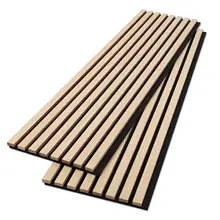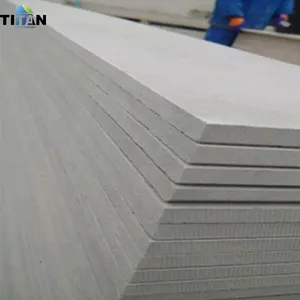Cement Board Overview
Cement board is a robust building material that serves as a stable substrate for tile and stone installations. Composed of cement and reinforcing fibers, this product is known for its durability and resistance to moisture, making it an ideal choice for both interior and exterior projects. Its versatility extends to applications in floors, walls, and countertops, particularly in areas prone to water exposure such as bathrooms and kitchens.
Types and Composition
There are various types of cement boards available, each tailored for specific uses. The most common types include fiber cement board, which is reinforced with cellulose fibers, and cement-bonded particle board, which contains wood or wood fibers. These materials contribute to the board's strength and impact resistance. The composition of a cement board is critical, as it determines its suitability for different climates and exposure conditions.
Applications and Installation
Cement boards are widely used as a tile backing board in wet areas due to their water-resistant properties. They also serve as a fire-resistant layer in fire-rated wall assemblies. Installation of cement board requires specific techniques to ensure a solid, level surface for the finish materials. While the installation process may vary depending on the application, it typically involves securing the boards to the framing with screws and sealing the joints with mesh tape and mortar.
Features and Advantages
The primary features of cement board include its resistance to mold, mildew, and water damage, which contribute to its longevity and low maintenance requirements. Its dimensional stability under various temperature and humidity conditions is another advantage, preventing the warping or cracking that can occur with other materials. Additionally, cement board provides an excellent bonding surface for tile adhesives, contributing to the longevity of tile installations.
Materials and Sustainability
Cement board is often praised for its sustainability, as it can contain recycled materials and is itself recyclable. The materials used in its manufacture are also inert, meaning they do not off-gas volatile organic compounds (VOCs), contributing to healthier indoor air quality. The durability of cement board also means it does not need to be replaced frequently, reducing waste over time.
Choosing the Right Cement Board
Selecting the appropriate cement board for a project involves considering the specific requirements of the installation area, such as exposure to moisture, load-bearing needs, and the type of finish material to be applied. It is essential to consult with a professional to determine the most suitable type of cement board for your project's unique demands.











































 浙公网安备 33010002000092号
浙公网安备 33010002000092号 浙B2-20120091-4
浙B2-20120091-4